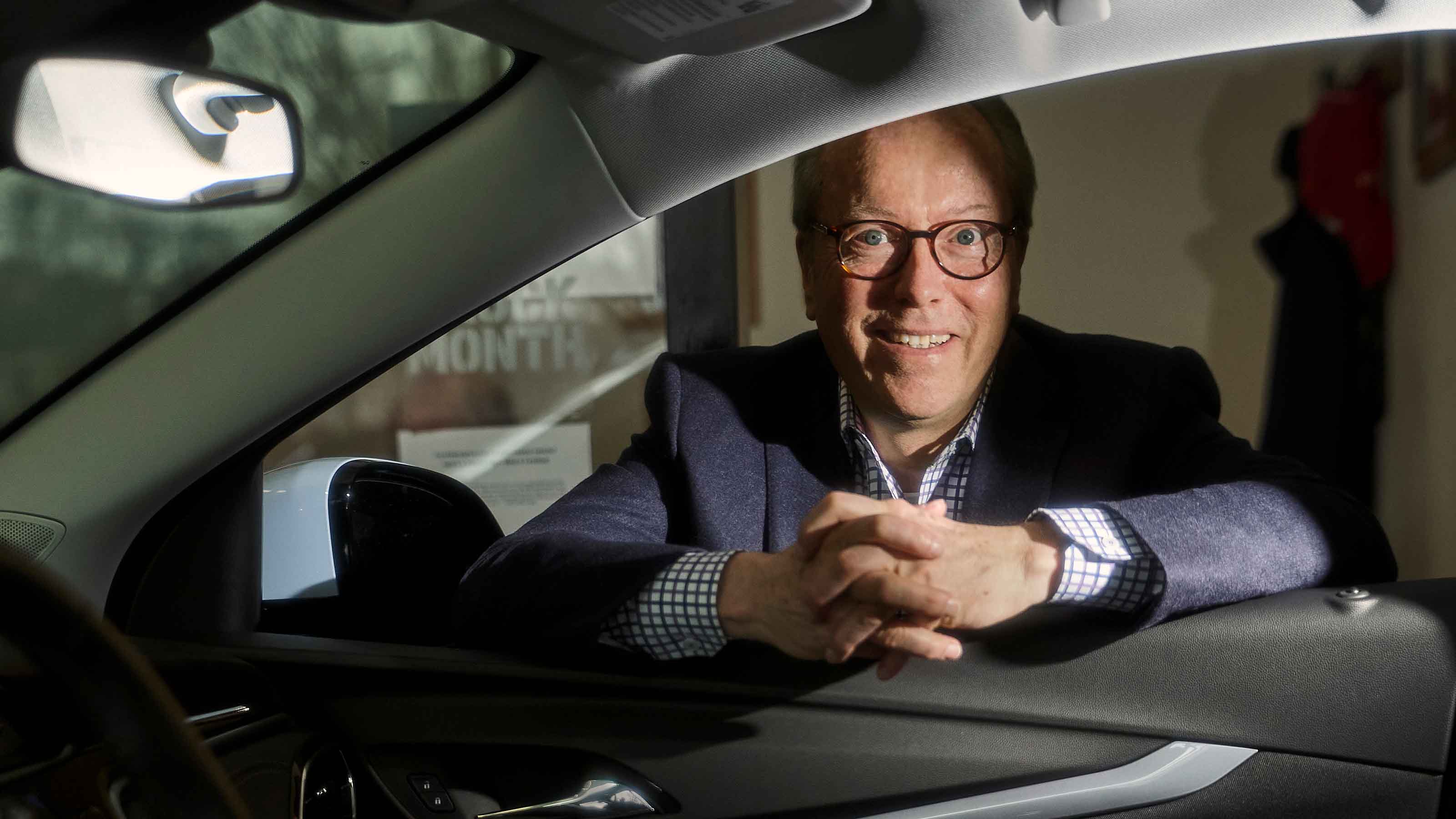Small-Business Success Story: Copia
Komal Ahmad's app connects food purveyors with groups that make good use of excess food.


Profit and prosper with the best of Kiplinger's advice on investing, taxes, retirement, personal finance and much more. Delivered daily. Enter your email in the box and click Sign Me Up.
You are now subscribed
Your newsletter sign-up was successful
Want to add more newsletters?
Kiplinger's spoke with Komal Ahmad, 26, founder and CEO of Copia (pictured above), a San Francisco, Calif.-based tech company that matches companies with excess edible food with people in need. Here's an excerpt from our interview:
How does it work? We ask nonprofits to create online profiles: What foods do they need? When do they need them? How do they need to be packaged? What storage facilities do they have? Donors go online or use our app to quickly schedule a pickup of their excess food. Our back-end system matches the amount and type of food to the nonprofits that need it, and we dispatch our drivers, who are certified food handlers, for pickup and delivery.
What’s in it for the donors? We help them unlock the full value of their unused food. They get an enhanced tax deduction of up to 15% of its fair market value. Donors pay Copia a per-pound pickup fee. We provide data that helps them reduce food waste and improve their bottom line, as well as marketing and branding support. The nonprofits provide testimonials and confirm receipt of the food, so we can provide businesses with proof of their donation in case of a tax audit.
From just $107.88 $24.99 for Kiplinger Personal Finance
Become a smarter, better informed investor. Subscribe from just $107.88 $24.99, plus get up to 4 Special Issues

Sign up for Kiplinger’s Free Newsletters
Profit and prosper with the best of expert advice on investing, taxes, retirement, personal finance and more - straight to your e-mail.
Profit and prosper with the best of expert advice - straight to your e-mail.
How did you finance your rollout? Initially with the Bank of Komal—my life savings. In January 2016, I participated in Y Combinator, which provides seed funding and a support network for start-ups. It gave us $120,000 in exchange for 7% of the company. We’ve also worked with venture capitalists. Toyota honored me in 2016 as one of its Mothers of Invention, and we won $50,000.
Where will you go next? We anticipate taking Copia to Sacramento, and within the next two years or less we want to be in large cities nationwide. We may license our technology and model in smaller cities.
Are you making a living? I took a salary for the first time in 2016, but I’m not the highest-paid person on our full-time staff of eight. Solving the world’s biggest problems requires the smartest people, and my greatest success is our extraordinary team.
Profit and prosper with the best of Kiplinger's advice on investing, taxes, retirement, personal finance and much more. Delivered daily. Enter your email in the box and click Sign Me Up.

-
 Timeless Trips for Solo Travelers
Timeless Trips for Solo TravelersHow to find a getaway that suits your style.
-
 A Top Vanguard ETF Pick Outperforms on International Strength
A Top Vanguard ETF Pick Outperforms on International StrengthA weakening dollar and lower interest rates lifted international stocks, which was good news for one of our favorite exchange-traded funds.
-
 Is There Such a Thing As a Safe Stock? 17 Safe-Enough Ideas
Is There Such a Thing As a Safe Stock? 17 Safe-Enough IdeasNo stock is completely safe, but we can make educated guesses about which ones are likely to provide smooth sailing.
-
 How to Search For Foreclosures Near You: Best Websites for Listings
How to Search For Foreclosures Near You: Best Websites for ListingsMaking Your Money Last Searching for a foreclosed home? These top-rated foreclosure websites — including free, paid and government options — can help you find listings near you.
-
 Four Tips for Renting Out Your Home on Airbnb
Four Tips for Renting Out Your Home on Airbnbreal estate Here's what you should know before listing your home on Airbnb.
-
 Is Relief from Shipping Woes Finally in Sight?
Is Relief from Shipping Woes Finally in Sight?business After years of supply chain snags, freight shipping is finally returning to something more like normal.
-
 Economic Pain at a Food Pantry
Economic Pain at a Food Pantrypersonal finance The manager of this Boston-area nonprofit has had to scramble to find affordable food.
-
 The Golden Age of Cinema Endures
The Golden Age of Cinema Enduressmall business About as old as talkies, the Music Box Theater has had to find new ways to attract movie lovers.
-
 Pricey Gas Derails This Uber Driver
Pricey Gas Derails This Uber Driversmall business With rising gas prices, one Uber driver struggles to maintain his livelihood.
-
 Smart Strategies for Couples Who Run a Business Together
Smart Strategies for Couples Who Run a Business TogetherFinancial Planning Starting an enterprise with a spouse requires balancing two partnerships: the marriage and the business. And the stakes are never higher.
-
 Fair Deals in a Tough Market
Fair Deals in a Tough Marketsmall business When you live and work in a small town, it’s not all about profit.